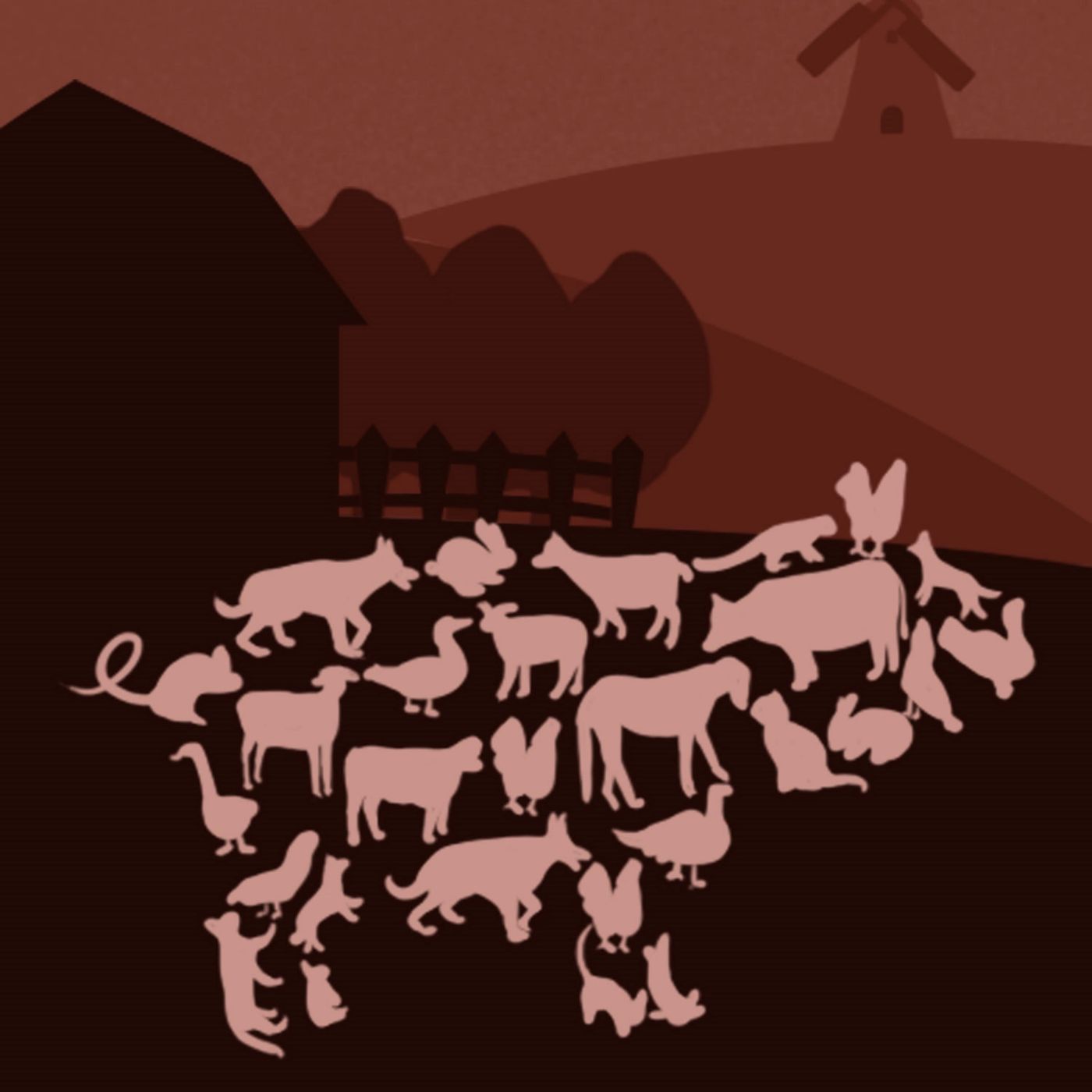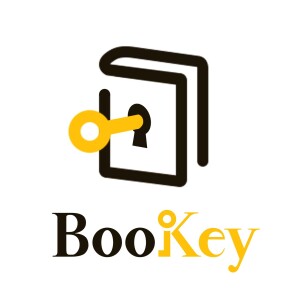
Power Corrupts: A Tale of Betrayal and Revolution in Animal Farm
 2024-07-11
2024-07-11
Download
Right click and do "save link as"
Chapter 1:Summary of Animal Farm
Animal Farm is a satirical allegory that tells the story of a group of farm animals who rebel against their human farmer, Mr. Jones, and establish their own utopian society, only to have it corrupted by their own leaders. The animals, led by the pigs Napoleon and Snowball, overthrow Mr. Jones and establish a society based on the principles of Animalism, an ideology created by the pig Old Major.
At first, the animals work together to build a more equal and just society, but as time passes, the pigs begin to dominate and exploit the other animals for their own gain. Napoleon, in particular, becomes increasingly tyrannical, using propaganda, violence, and manipulation to maintain control over the farm.
The novel explores themes of power, corruption, propaganda, and the nature of political systems. It serves as a critique of totalitarianism and a warning against the dangers of unchecked power. In the end, the pigs become indistinguishable from the humans they once rebelled against, leaving the other animals disillusioned and oppressed.
Overall, Animal Farm is a powerful and thought-provoking critique of authoritarianism and the ways in which leadership can be corrupted.
Chapter 2:the meaning of Animal Farm
"Animal Farm" by George Orwell is an allegorical novella that tells the story of a group of farm animals who rebel against their human owner in order to establish a utopian society based on the principles of equality and fairness. However, over time, the pigs, who take on leadership roles, become corrupt and start to resemble the humans they originally rebelled against. The novella is a critique of the Russian Revolution and the rise of Stalinism, highlighting the dangers of totalitarianism and the corruption of power. It explores themes such as the nature of power, the manipulation of language, and the importance of individual responsibility in the face of injustice.
Chapter 3:Animal Farm chapters
Chapter 1: The animals of Manor Farm, led by the pigs Old Major, Snowball, and Napoleon, revolt against their human owner, Mr. Jones. They dream of creating a utopian society where all animals are equal.
Chapter 2: After the successful revolution, Old Major dies and the animals set up their own government based on the principles of Animalism. Snowball and Napoleon emerge as leaders, but they quickly begin to clash over how to govern the farm.
Chapter 3: The animals work hard to rebuild the farm and improve their living conditions. They create the Seven Commandments of Animalism, which are painted on the barn wall for all to follow.
Chapter 4: Snowball and Napoleon continue to disagree over the direction of the farm, with Snowball advocating for new technologies and education for all animals, while Napoleon focuses on building his own power. Eventually, Napoleon directs his nine fierce dogs to chase Snowball off the farm.
Chapter 5: Under Napoleon's leadership, the farm begins to prosper, but the animals start to notice that things are not as promised in their ideal society. Napoleon becomes increasingly tyrannical and manipulative, using propaganda and violence to maintain control.
Chapter 6: Napoleon consolidates his power and begins trading with the neighboring farms, going against the principles of Animalism. The animals work harder than ever, but are rewarded with less food and worsening living conditions.
Chapter 7: The animals face more difficulties as Napoleon grows more oppressive and corrupt. They begin to question the legitimacy of his rule, but are silenced by fear and manipulation.
Chapter 8: Napoleon continues to expand his power, making himself the supreme leader of the farm. The animals begin to realize that their revolution has been corrupted and that they are no better off than they were under human rule.
Chapter 9: The animals struggle to maintain hope as they face increasing repression and suffering under Napoleon's rule. The pigs become indistinguishable from the humans they once opposed, and the farm descends into chaos and oppression.
Chapter 10: The novel concludes with the animals realizing that the pigs have become their oppressors and that the dream of a utopian society is dead. The pigs and humans make a deal to work together, and the animals are left disillusioned and defeated, realizing that power corrupts even the best intentions.
Chapter 4: 10 Quotes From Animal Farm
view more
Animal Farm is a satirical allegory that tells the story of a group of farm animals who rebel against their human farmer, Mr. Jones, and establish their own utopian society, only to have it corrupted by their own leaders. The animals, led by the pigs Napoleon and Snowball, overthrow Mr. Jones and establish a society based on the principles of Animalism, an ideology created by the pig Old Major.
At first, the animals work together to build a more equal and just society, but as time passes, the pigs begin to dominate and exploit the other animals for their own gain. Napoleon, in particular, becomes increasingly tyrannical, using propaganda, violence, and manipulation to maintain control over the farm.
The novel explores themes of power, corruption, propaganda, and the nature of political systems. It serves as a critique of totalitarianism and a warning against the dangers of unchecked power. In the end, the pigs become indistinguishable from the humans they once rebelled against, leaving the other animals disillusioned and oppressed.
Overall, Animal Farm is a powerful and thought-provoking critique of authoritarianism and the ways in which leadership can be corrupted.
Chapter 2:the meaning of Animal Farm
"Animal Farm" by George Orwell is an allegorical novella that tells the story of a group of farm animals who rebel against their human owner in order to establish a utopian society based on the principles of equality and fairness. However, over time, the pigs, who take on leadership roles, become corrupt and start to resemble the humans they originally rebelled against. The novella is a critique of the Russian Revolution and the rise of Stalinism, highlighting the dangers of totalitarianism and the corruption of power. It explores themes such as the nature of power, the manipulation of language, and the importance of individual responsibility in the face of injustice.
Chapter 3:Animal Farm chapters
Chapter 1: The animals of Manor Farm, led by the pigs Old Major, Snowball, and Napoleon, revolt against their human owner, Mr. Jones. They dream of creating a utopian society where all animals are equal.
Chapter 2: After the successful revolution, Old Major dies and the animals set up their own government based on the principles of Animalism. Snowball and Napoleon emerge as leaders, but they quickly begin to clash over how to govern the farm.
Chapter 3: The animals work hard to rebuild the farm and improve their living conditions. They create the Seven Commandments of Animalism, which are painted on the barn wall for all to follow.
Chapter 4: Snowball and Napoleon continue to disagree over the direction of the farm, with Snowball advocating for new technologies and education for all animals, while Napoleon focuses on building his own power. Eventually, Napoleon directs his nine fierce dogs to chase Snowball off the farm.
Chapter 5: Under Napoleon's leadership, the farm begins to prosper, but the animals start to notice that things are not as promised in their ideal society. Napoleon becomes increasingly tyrannical and manipulative, using propaganda and violence to maintain control.
Chapter 6: Napoleon consolidates his power and begins trading with the neighboring farms, going against the principles of Animalism. The animals work harder than ever, but are rewarded with less food and worsening living conditions.
Chapter 7: The animals face more difficulties as Napoleon grows more oppressive and corrupt. They begin to question the legitimacy of his rule, but are silenced by fear and manipulation.
Chapter 8: Napoleon continues to expand his power, making himself the supreme leader of the farm. The animals begin to realize that their revolution has been corrupted and that they are no better off than they were under human rule.
Chapter 9: The animals struggle to maintain hope as they face increasing repression and suffering under Napoleon's rule. The pigs become indistinguishable from the humans they once opposed, and the farm descends into chaos and oppression.
Chapter 10: The novel concludes with the animals realizing that the pigs have become their oppressors and that the dream of a utopian society is dead. The pigs and humans make a deal to work together, and the animals are left disillusioned and defeated, realizing that power corrupts even the best intentions.
Chapter 4: 10 Quotes From Animal Farm
- "All animals are equal, but some animals are more equal than others."
- "The only good human being is a dead one."
- "Man is the only real enemy we have. Remove Man from the scene, and the root cause of hunger and overwork is abolished forever."
- "The creatures outside looked from pig to man, and from man to pig, and from pig to man again; but already it was impossible to say which was which."
- "No one believes more firmly than Comrade Napoleon that all animals are equal. He would be only too happy to let you make your decisions for yourselves. But sometimes you might make the wrong decisions, comrades, and then where should we be?"
- "Four legs good, two legs bad."
- "The creatures of Animal Farm looked at each other in dismayed silence. They had had no intention of killing the other animals, not even snowball. They had only -."
- "The pigs did not actually work, but directed and supervised the others."
- "Boxer and Clover would harness themselves to the cutter or the horse-rake (no bits or reins were needed in these days, of course) and tramp steadily round and round the field with a pig walking behind and calling out 'Gee up, Comrade!' or 'Whoa back, Comrade!' as the case might be."
- "The creatures on the farm go out for a walk or hang around the pond."
More Episodes
012345678910111213141516171819
Create your
podcast in
minutes
- Full-featured podcast site
- Unlimited storage and bandwidth
- Comprehensive podcast stats
- Distribute to Apple Podcasts, Spotify, and more
- Make money with your podcast
It is Free
- Privacy Policy
- Cookie Policy
- Terms of Use
- Consent Preferences
- Copyright © 2015-2024 Podbean.com






